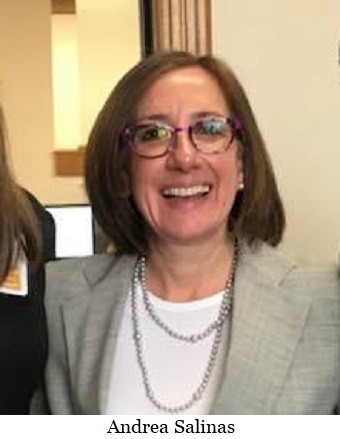
On this day, August 29, 1984, Oregon members of the Bhagwan Shree Rajneesh cult sprinkled salmonella bacteria on salad bar ingredients in local restaurants. Over 750 people were sickened.
Also on this day, August 29, 2020, a man was fatally shot as a caravan of Mr. Trump's supporters drove through Portland for a pro-Trump rally and clashed with counter protesters. Trump supporter, Aaron "Jay" Danielson, was shot and killed after he came downtown. On August 30, antifa supporter Michael Forest Reinoehl, the suspected shooter of Danielson, was shot and killed near Lacey, Wa., by law enforcement agents.
 Post an Event
Post an Event
| Benton County Republicans’ Private Fundraising Event, “Bent-on Boots and Bling” with Trey Taylor |
| Friday, September 5, 2025 at 5:00 pm |
| Featuring Trey Taylor
Music Private Event
Friday, September 5, 2025 5:00-5:30 pm VIP Reception
5:30-8:00 pm Heavy Appetizers,
Auction, Concert
Red: $750 VIP Reception
Front Row Table Sponsor
White: $500 Table Sponsor
Blue: $50 per person
Limited Seating. Get Yours Now!!!
Support Local
Dress up: Bling, Cowboy, Patriotic Benton County Republican
FUNDRAISER
www.BentonGOP.org
Get your tickets today at:
https://www.bentongop.org/event-details/benton-county-republicans-fundraiser/form
About Trey:
Trey is the youngest African American Man in Country Music History. The Denver Post wrote
"It's impossible to miss his enthusiasm. With a fondness for cowboy boots, gaudy colors and dazzling jewelry, Trey Taylor could stand toe to toe with any of the Pop, Country or even Rap
contemporaries of his generation.“ |
| Trysting Tree Golf Club, 34028 NE Electric Rd., Corvallis |
Virtual access isn’t cutting it
The end of the 2021 Legislative Session is a week away, and everything is in fast pace. The public has been locked out of the capitol for hearings, and technical issues have prevented many from testifying. But it goes deeper, procedures are set to determine the outcome halfway through the process. Bills that have a financial impact are sent to the
Joint Committee on Ways and Means directly from the originating committee.
Before we go further, the process is for a bill to work through both Houses refining the policy issues, but there doesn’t seem to be any history of how a bill needing financial appropriations is allowed to interrupt that process. It has been done this way for the past 15 years -- as far back as OLIS records go.
There is bi-partisan questioning of this process. Senator Chris Gorsek (D-Troutdale) and Senator Bill Hansell (R-Athena) were both concerned with the process and Gorsek stated “it’s unfortunately how these things are structured because subcommittees aren’t setup to deal with policy.†Hansell agreed and questioned having big package bills rushed through by the subcommittee and not given “due process†venting for policy.
When the originating committee completes its review on a bill that has a financial impact, they pass it out to the Joint Committee on Ways and Means. There they are farmed out to subcommittees for a work session to chew over amendments for funding requests. This is done in a vacuum as if there were unlimited funds. The bill has not been fully vented by both houses, so in essence, their vote is based on their own agenda and moral views on what the bill does. The bill is then returned to the full Ways and Means committee, which takes the recommendation of the subcommittee and drills through our money like there is no tomorrow.
The Full Joint Committee on Ways and Means is simply a test of whether the bill will pass on the floor. There is no real discussion in work sessions. All the work is done behind closed doors balancing budget items within the statutory limits based on what the committee leaders want to see funded. That’s the only way that Ways and Means can possible get votes on 44 bills in 2-3 hours on the agenda this week. Included on the list are five full agency budgets. These bills are only heard in Ways and Means Subcommittees.
The
Oregon State Legislature website says, “A bill may be introduced in either the Senate or the House with the exception of revenue bills which must originate in the House.†Still, three of the agency budget bills on the agenda were introduced and assigned by the President of the Senate.
What this process does, by going through Ways and Means before it goes to the second House, is it makes the second House simply a formality without meaning. By the time it reaches the second House everything is settled.
The process doesn’t just short cut the process, but it denies half of our representation. It also denies us the public hearing opportunity to be heard when it counts, prior to decisions made. Quite often a bill is heard in the first house before many are aware of its existence, and now the hearing in the second house has been rendered meaningless.
When one party controls both Houses and the Administration, it doesn’t leave any room for opposition.
--Donna Bleiler| Post Date: 2021-06-19 15:55:01 | Last Update: 2021-06-19 16:08:46 |
The OHA lacks a cohesive strategic plan
The Oregon Legislative Assembly established the Housing for Mental Health Fund in 2015 when it dedicated $20 million in lottery bonds and housed the fund in the Oregon Housing and Community Services (OHCS). These funds were to provide financial assistance for the development, acquisition, renovation or improvement of affordable housing for Oregonians who have mental illnesses or addiction disorders.
In 2017,
HB 3063 brings the Oregon Health Authority (OHA) in as collaborator on how to distribute the funds by convening an advisory group to make recommendations for the Housing for Mental Health Fun.
Fast forward to this session, Representative Andrea Salinas, (D-Lake Oswego) introduced
HB 2316 transferring responsibility for administering the Housing for Mental Health Fund from HCSD to OHA and changes the name to the Behavioral Health Housing Incentive Fund. The directives stay the same carrying out provisions of ORS 458.385, so perhaps the name change is to appear more like a health issue rather than a housing issue, or maybe it’s an indication of more changes to the use of the funds.
What is puzzling about this bill is that when searching Oregon.gov, the Housing for Mental Health Fund isn’t found, except for this bill. OHCS lacks any reference to mental health housing needs. However, the bill may be codifying what is in practice since OHA, Behavioral Health Services, Affordable Housing unit provides an affordable housing inventory listing. But there is still no mention of the Housing for Mental Health Fund. It does beg the question as to how $20 million lottery funds were spent, and spent equitably when the fund can’t be searched.
Along with this bill, there are 172 bills introduced this legislative session aimed at adding more responsibility to the Oregon Health Authority, with little accountability. OHA Director, Pat Allen, has stood by Governor Brown’s decisions and supporting her “powers of persuasion†issuing Guidelines as though they were laws. Whatever the Governor wants proof for, he makes sure the numbers are there. Is there some kind of payback reflected in building an OHA empire?
A D V E R T I S E M E N T

A D V E R T I S E M E N T
Many of the 172 are studies aimed at the probability of new programs, some are collaboration with other agencies, some expand existing programs or give new direction, but sixteen are clearly new programs to the agency and two transfer the administration of a program from another agency to OHA.
- HB 2041 – requested by the Governor - transfers duties, functions and powers related to COFA Premium Assistance Program and health insurance exchange from Department of Consumer and Business Services to OHA.
- HB 2316 transfer responsibility for administering the Housing for Mental Health Fund from HCSD to OHA
The Secretary of State’s audited Oregon’s Mental Health in 2020 indicating the statues do not fully support mental health service delivery. Oregon lacks a vision for behavioral health, OHA lacks a cohesive strategic plan with high turnover in staff affecting delivery of care, and accountability needs improving. This is the department we entrust care of our most vulnerable.
--Donna Bleiler| Post Date: 2021-06-18 22:42:04 | Last Update: 2021-06-18 22:46:49 |
Property owners may have a chance to recover lost revenue
The Oregon House has passed
SB 278 to extend eviction protections for tenants who applied for renters assistance. Added to the bill is an amendment negotiated by House Republicans that will allow property owners to seek the full amount of rent deferred by the COVID-19 emergency.
This part of the amendment reads:
The Housing and Community Services Department shall make distributions to adjust the compensation under section 2 (1), chapter 3, Oregon Laws 2020 (third special session), for landlords whose applications were approved before the effective date of this 2021 Act without
requiring that the landlord submit an additional application.
A previous bill,
HB 4401, required property owners to forgive 20 percent of rent when the state reopens. Now they will be able to get the full amount of rent lost in order to repay mortgage loans, cover deferred maintenance or necessary repairs, and pay for property taxes. The Oregon Legislature passed
$150 million in compensation for housing providers, but that was not enough to cover the losses.
“It’s important that we help Oregonians recover, and that includes property owners who kept people housed during the pandemic,†said House Republican Leader Christine Drazan (R-Canby). “We have to make a promise that Oregon will continue to be a state with sensible housing policies that allow property owners to collect rent in order operate. We can’t afford an exodus of landlords which will exacerbate the housing crisis.â€
Photo by Zachary Keimig on Unsplash
--Staff Reports| Post Date: 2021-06-18 07:08:11 | Last Update: 2021-06-17 16:14:37 |
“Several people from my district have reached out to meâ€
State Representative Mike Nearman has ended speculation about whether he will try to regain his old office and has filed a form indicating his willingness to serve, if appointed. The Oregon Republican Party will host a House District 23 Nominating Convention on Friday, June 25, when -- according to Oregon law -- the Precinct Committeepersons from House District 23 will nominate between 3 and 5 persons to present to the county commissioners. The district includes parts of four counties: Polk, Yamhill, Marion and Benton.
Nearman was
expelled from the Oregon House of Representatives on June 10 of this year by a vote of 59-1. He was first elected to the seat in 2014.
"Several people from my district have reached out to me and urged me to run," said Nearman. "I think many of them are upset that their choice for State Representative was removed by 59 people who don't live in the district." Nearman teased the idea on the Lars Larson show on June 11 and
speculation has been rampant as to whether or not he was serious.
All of the votes, both from the Precinct Committeepersons and the County Commissioners are weighted so that they reflect the number of persons represented.
--Staff Reports| Post Date: 2021-06-17 16:14:37 | Last Update: 2021-06-17 18:29:29 |
Housing providers have repeatedly been promised they would be made whole
On June 30, the eviction moratorium will end, requiring tenants to start paying their bills but will allow months to repay any back rent from the last year. Yet two recent programs designed to alleviate the impact of evictions and delinquent payment, the Landlord Compensation Fund, and the Emergency Rental Assistance Program, have been delayed by bureaucratic technical errors.
“For months, lawmakers have known that this day would come, that the eviction moratorium would come to an end,†said Senator Dick Anderson (R-Lincoln City), a member of the Senate Housing and Development Committee. “This is the second time this year our state housing agency has made a commitment to vulnerable Oregonians in need of help and has failed. Kicking the can down the road by extending the moratorium won’t fix the problem. There needs to be a change in the system, and it needs to happen fast.
“In my conversations with advocates and service providers, the biggest problem is the software that is being used to administer applications and funds. It's not flexible enough to get help to those who need it on time. Without any change from the government, there isn’t any guarantee that the proposed 60-day eviction moratorium extension will be enough. We may just be back in the same position, scrambling to keep people housed.â€
Housing providers have repeatedly been promised they would be made whole by lawmakers. Yet the latest move to extend the moratorium another 60 days has them worried that money will be delayed again. Lawsuits against the state loom, if this doesn't get resolved and many experts think that the housing providers have a good case, since they were effectively required to run a welfare program out of their back pockets.
“Nobody wants to see people lose their homes,†Sen. Anderson continued. “Government failures might cause that to happen. Tenants and housing providers need a fix fast if we want people to stay in their homes.â€
--Staff Reports| Post Date: 2021-06-17 14:43:46 | |
Primary role has been crowd events
On June 16, 2021, Portland Police Bureau employees serving as members of the Rapid Response Team (RRT)
left their voluntary positions and no longer comprise a team. Its members were sworn employees of the Portland Police who served on RRT in addition to their daily assignment in the Bureau. Despite no longer serving on RRT, they will continue in their regular assignments. There were approximately 50 employees serving as RRT members.
The Rapid Response Team is an all-hazard incident response team that has received advanced specialized training to respond to incidents requiring higher levels of technical expertise including public order policing, natural or man-made disasters. The primary role has been to provide public safety at crowd events when there was a threat of harm to the community. All Rapid Response Team members are trained in advanced skills related to crowd management and crowd control including crowd psychology and behavior, team formations and movements, the use of enhanced personal protective equipment, use of force, de-escalation and arrests.
--Bruce Armstrong| Post Date: 2021-06-17 10:59:11 | Last Update: 2021-06-17 11:11:45 |
The bill has broad support from journalists and advocates
The Oregon Senate passed
SB 500, introduced by Senator Kim Thatcher (R-Keizer) on a vote of 28-1. Under the legislation, the public records advocate will become an independent office, giving it separation from the Governor and political influence.
By creating an independent office, the public records advocate would be granted more autonomy, rather than the position and office being under the governor’s control.
“The public’s access to government records shouldn’t be political,†said Senator Kim Thatcher (R-Keizer), author of the legislation. “This bill will rebuild trust between Oregonians and their government. It will ensure more transparency and accountability in the handling of public records.â€
Since 2019, two public records advocates appointed by the Governor have resigned. Ginger McCall had alleged political pressure from the Governor’s office in handling public records requests. Becky Chiao also resigned after concerns arose over her objection to making the office independent from politics.
The bill has broad support from journalists, advocates, and the current public records advocate, Todd Albert.
In written testimony in support of
SB 500, Albert said that making the office independent would “focus its limited resources on continuing the day-to-day work of being an impartial, consistently reliable office that has become a trusted voice in the ongoing conversation about transparency and access to information in Oregon.â€
The bill will now head to the House for consideration.
--Staff Reports| Post Date: 2021-06-16 11:34:49 | Last Update: 2021-06-18 15:13:55 |
New plan allocates millions in taxpayer dollars for politicians
After refusing to fully fund schools by $300 million, proposal from House Democrats would fund elections for political candidates
A proposal from House Democrats will soon be up for a vote to allocate possibly $66 million every two years for candidates running for political offices in Oregon.
HB 2680, introduced by State Representative Dan Rayfield (D-Corvallis) allocates $6 taxpayer dollars for every eligible dollar received if a political candidate meets certain criteria. The cap is $400,000 for candidates running for an Oregon House seat and $600,000 for a candidate running for an Oregon Senate seat.
“Budgets express priorities,†said House Republican Leader Christine Drazan (R-Canby). “Republicans believe that we should be using taxpayer dollars this year to fully fund education so schools can fully reopen by the fall. Democrats are choosing to fund political ambitions instead. That’s a decision they’ve made, and it’s wrong.â€
--Staff Reports| Post Date: 2021-06-16 11:28:00 | |
The Legislature will run it’s course with no public presence
The end of the 2021 Legislative Session is a week away, and everything is in fast pace. The public has been locked out of the capitol for hearings, and technical issues have prevented many from testifying. But it goes deeper, procedures are set to determine the outcome halfway through the process. Bills that have a financial impact are sent to the Joint Committee on Ways and Means directly from the originating committee.
Before we go further, the process is for a bill to work through both Houses refining the policy issues, but there doesn’t seem to be any history of how a bill needing financial appropriations is allowed to interrupt that process. It has been done this way for the past 15 years -- as far back as OLIS records go.
There is bi-partisan questioning this process. Senator Chris Gorsek (D-Troutdale) and Senator Bill Hansell (R-Athena) were both concerned with the process and Gorsek stated “it’s unfortunately how these things are structured because subcommittees aren’t setup to deal with policy.†Hansell agreed and questioned having big package bills rushed through by the subcommittee and not given “due process†venting for policy.
When the originating committee completes its review on a bill that has a financial impact, they pass it out to the Joint Committee on Ways and Means. There they are farmed out to subcommittees for a work session to chew over amendments for funding requests. This is done in a vacuum as if there were unlimited funds. The bill has not been fully vented by both houses, so in essence, their vote is based on their own agenda and moral views on what the bill does. The bill is then returned to the full Ways and Means committee, which takes the recommendation of the subcommittee and drills through our money like there is no tomorrow.
The Full Joint Committee on Ways and Means is simply a test of whether the bill will pass on the floor. There is no real discussion in work sessions. All the work is done behind closed doors balancing budget items within the statutory limits based on what the committee leaders want to see funded. That’s the only way that Ways and Means can possible get votes on 44 bills in 2-3 hours on the agenda this week. Included on the list are five full agency budgets. These bills are only heard in Ways and Means Subcommittees.
A D V E R T I S E M E N T

A D V E R T I S E M E N T
What this process does, by going through Ways and Means before it goes to the second House, is it makes the second House simply a formality without meaning. By the time it reaches the second House everything is settled.
The process doesn’t just short cut the process, but it denies half of our representation. It also denies us the public hearing opportunity to be heard when it counts, prior to decisions made. Quite often a bill is heard in the first house before many are aware of its existence, and now the hearing in the second house has been rendered meaningless.
When one party controls both Houses and the Administration, it doesn’t leave any room for opposition.
--Donna Bleiler| Post Date: 2021-06-15 22:46:49 | |
He says he understands budget, law, and most importantly how to listen
More and more people are thinking this state needs a business owner for governor to get us in the right direction. Darin Harbick thinks he has the experience, even though he isn’t political. He is selling his Takoda’s Restaurant to his daughter and son-in-law to give him the time to run for governor.
Darin Harbick has experienced first-hand the obstacles of building a business from the ground up and wants to help those Oregonians who have aspirations of owning a business. At one time Darin operated five businesses and managed over 100 employees. When he learned about the need in Oregon to help those with mental health problems, opioid addiction, and homelessness he and his wife, Kail, began a five-bed recovery center for those who are suffering.
Darin Harbick, born and raised in Lane County, has served 14 years on the McKenzie School Board, 15 years on the Chamber of Commerce Board and 3 years on Travel Lane County. At the same time, he owned and operated his businesses and served his local community. He coached a girls’ high school basketball team to State Championship. He also coached women’s basketball at a private college in Eugene.
He has a strong sense of community helping fire victims, moving logs and trees so people can rebuild their homes. He also owns and drives a log truck like his father before him.
From his fourteen years of experience on the school board, he says he understands budget, law, and most importantly how to support parents and listen carefully to their concerns about their children’s education. His friends say Darin is not one to see a problem and hope somebody else does something. He will get involved to help bring the change.
--Donna Bleiler| Post Date: 2021-06-15 20:21:03 | Last Update: 2021-06-16 01:16:27 |
The state is getting close to the artificial threshold of 70%
In a
letter to Governor Kate Brown House Republican Leader Christine Drazan scolded the Governor for the level of COVID-19 restrictions still in place in Oregon and asked her to consider easing restrictions, comparing Oregon to California and other states.
We urge you to join California today by reopening Oregon immediately and rescinding the COVID-19 emergency orders in the state.
Oregon does not need to be the most restrictive state on the West Coast, or one of the last states to reopen nationwide. Oregonians have sacrificed so much during this pandemic. We should recognize their contributions by reopening the state at the same time as our
neighbors.
Hospitals are much better equipped to treat COVID-19 patients, and vaccines have greatly reduced the potential for emergency room visits for our at-risk population. The effectiveness of natural immunity is very promising. If we include Oregonians with natural immunity, then we are well above the 70 percent threshold to reopen the state.
Oregonians have been through enough. They do not need to wait another day. Vaccines are readily available and individuals can still wear masks if they choose. It is time for the state to return to normal by lifting emergency orders now.
Oregon has failed to develop policies that address
natural immunity that is acquired by persons who have had COVID-19 and recovered. About 5% of Oregon's population has natural immunity to COVID1-19 and some think that these should be classified with the vaccinated. The state is getting close to the
artificial threshold of 70% but the rate of vaccinations is slowing, making that target ever elusive.
--Staff Reports| Post Date: 2021-06-15 12:45:36 | Last Update: 2021-06-15 16:21:03 |
It’s going to go a long way in helping rebuild
The Oregon Senate has passed legislation that would allow counties to give property tax relief to families whose homes, businesses, and/or properties were damaged or destroyed by wildfire.
“My community needs additional help to rebuild after last year's fires,†said Senate Republican Leader Fred Girod (R-Lyons), chief sponsor of the legislation. “This bill has been one of my main priorities this session. It’s going to go a long way in helping my district rebuild.â€
The Beachie Creek and Lionshead Wildfires swept through the Santiam Canyon over Labor Day 2020 causing unprecedented damage throughout the communities. Losses in the Santiam Canyon are significant which includes more than 700 homes, 85 businesses, and city infrastructure.
“Many did not have the insurance coverage to completely rebuild their homes and businesses,†said Representative Jami Cate (R-Lebanon), also a sponsor of the bill. “Making them pay tax on property that was rendered useless is an additional burden on those already struggling to recover. This bill is just another tool for counties to help their residents get back on their feet.â€
SB 464 would apply to tax year 2020-2021 and include counties in the Governor’s 2020 emergency wildfire declarations.
SB 464 passed the Senate on a 28-1 vote and will now go to the House for consideration.
--Staff Reports| Post Date: 2021-06-15 12:32:24 | |
Read More Articles



















